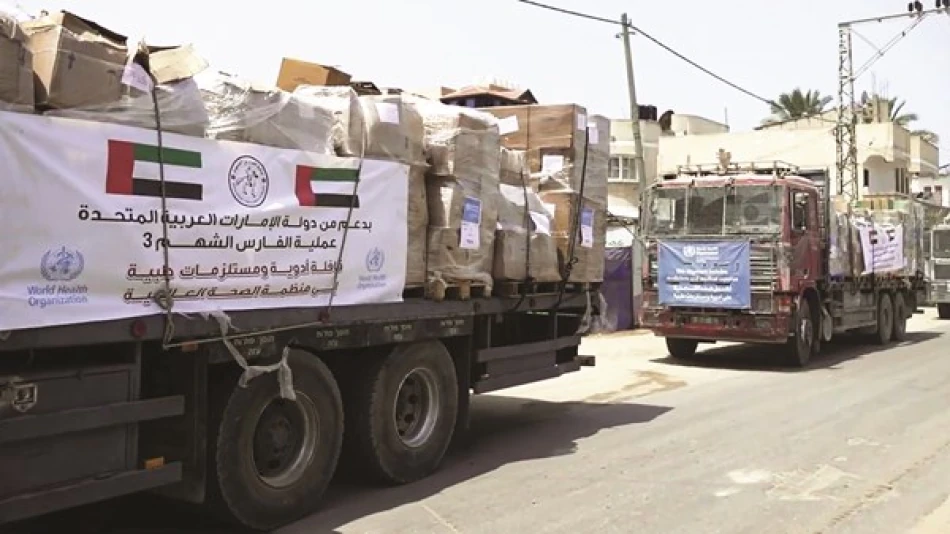
UAE Praised by WHO for Supporting Gaza's Medical Sector
UAE's Medical Diplomacy Takes Center Stage as WHO Endorses Gaza Field Hospital Operations
The United Arab Emirates has strengthened its position as a key humanitarian actor in Gaza's healthcare crisis, with World Health Organization officials visiting the Emirati field hospital to explore deeper cooperation. The visit signals growing international recognition of the UAE's strategic approach to medical diplomacy in conflict zones, as traditional healthcare infrastructure continues to buckle under mounting pressure.
WHO Delegation Highlights UAE's Emergency Response Model
Dr. Luca Pigozzi, coordinator of WHO's Medical Emergency Team in Gaza, led the delegation's assessment of the UAE field hospital's capabilities and services for treating wounded and injured patients. The WHO team praised the facility as an "effective model for emergency humanitarian response in crisis areas," language that suggests the organization views the UAE's approach as potentially replicable elsewhere.
This endorsement carries significant weight given WHO's typically cautious stance on bilateral medical interventions in conflict zones. The organization's public praise indicates the UAE has successfully navigated the complex political sensitivities surrounding Gaza while delivering measurable healthcare outcomes.
Operation "Gallant Knight 3" Expands Medical Supply Chains
Concurrent with the WHO visit, the UAE delivered a new convoy of medicines and medical supplies to Gaza hospitals through its "Gallant Knight 3" operation, coordinated directly with WHO protocols. This marks the third major medical supply delivery in recent weeks, following two previous convoys deployed approximately three weeks ago.
The systematic nature of these deliveries suggests the UAE has established reliable logistics channels into Gaza—a significant achievement given the territory's access restrictions and ongoing security challenges.
Strategic Implications for Regional Healthcare Diplomacy
Building Sustainable Medical Infrastructure
Unlike traditional humanitarian aid that focuses on immediate relief, the UAE's field hospital represents a longer-term commitment to healthcare infrastructure. This approach mirrors successful models deployed by countries like Turkey in Syria and Jordan's healthcare support for Syrian refugees, where temporary medical facilities evolved into semi-permanent healthcare assets.
International Legitimacy Through WHO Partnership
The UAE's coordination with WHO provides international legitimacy for its Gaza operations while potentially opening doors for expanded medical diplomacy elsewhere. This partnership model could prove attractive to other Gulf states seeking to enhance their humanitarian profiles without navigating complex bilateral political relationships.
Market and Policy Implications
The UAE's sustained medical engagement in Gaza reflects broader trends in Middle Eastern foreign policy, where humanitarian assistance serves dual purposes of addressing immediate crises while building long-term diplomatic capital. For medical supply companies and healthcare technology providers, the UAE's approach signals potential opportunities in conflict zone healthcare delivery.
The WHO's endorsement also suggests international organizations are increasingly willing to work with regional powers on healthcare initiatives, potentially creating new frameworks for public-private partnerships in humanitarian settings. This could influence how other countries structure their own medical diplomacy efforts, particularly as global health emergencies become more frequent and complex.
Most Viewed News

 Layla Al Mansoori
Layla Al Mansoori






